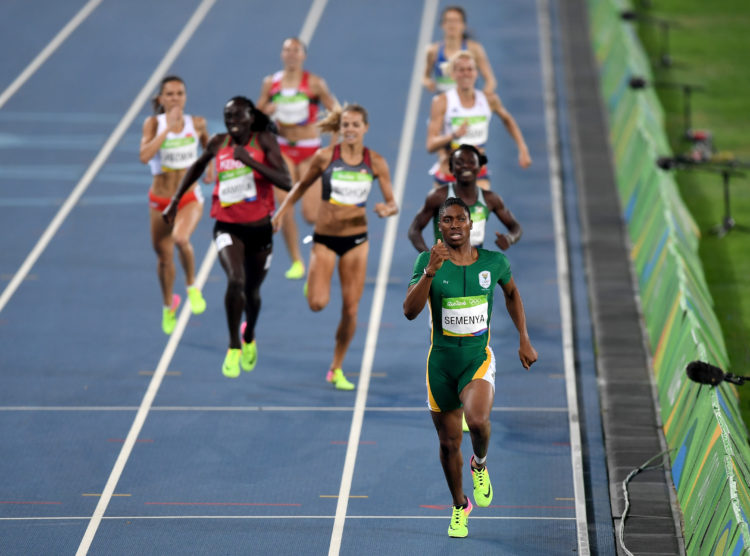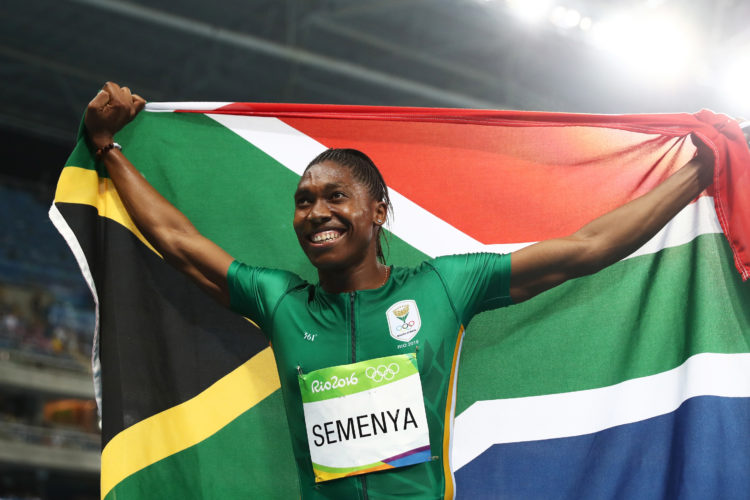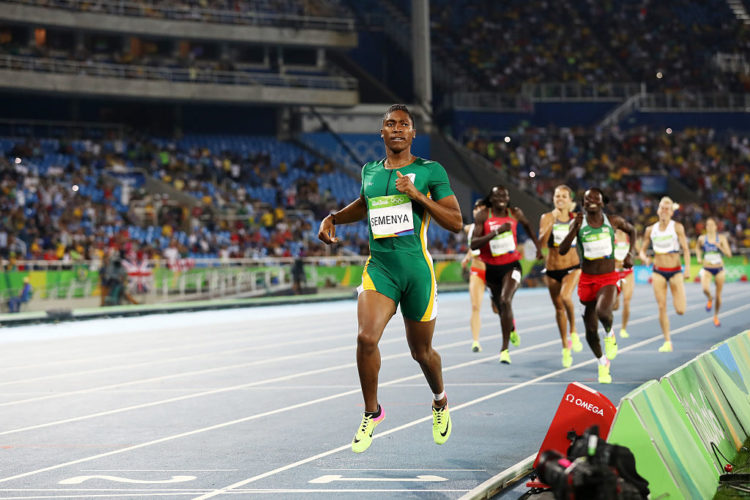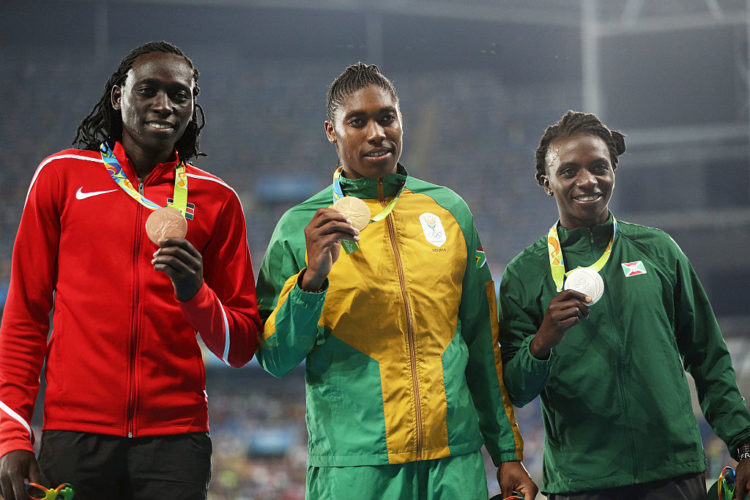Caster Semenya was one of the most talked about competitors at the Rio Olympic Games. The South African won gold in the 800m in a new national record time.
But the 25-year-old from Polokwane, who was the subject of ‘gender testing’ and not allowed to run for almost a year after winning the 2009 world championships, then found her future again in doubt.

Following her brilliant performances in Rio, the International Association of Athletics Federation has reiterated a claim that she, and all other hyperandrogenic athletes, should not be allowed to compete unless they take action to suppress their naturally high testosterone levels. It is an issue that has divided her sport with fellow medallists Francine Niyonsaba of Burundi and Kenya’s Margaret Wambui also the target of similar speculation to what Semenya faced in 2009.
But she still prefers to keep her chat to about the track.
The intensely private competitor, who celebrated her wedding to fellow runner Violet Raseboya earlier this year, broke her silence in Brazil. But she still prefers to keep her chat to about the track.
What is your message to people who still dispute your right to run? And how does that attention make you feel?
I think it is all about loving one another. It is not about discriminating against people. It is not about looking at how people look, how they speak, how they run. It is not about being muscular.

When you walk out of your apartment you think about performing, you don’t think about what your opponent looks like. You just want to do better. I think the advice to everyone is to go out there and have fun. As much as you have fun in training.
Was qualifying for the Olympic final and winning gold as comfortable as it looked?
It wasn’t easy. It was pretty hot. I just tried to hang on and tried to feel my body first so I was comfortable, I tried to just get in the top two and tried to win so I would be safe for qualification. I was not focused on any world records, just on enjoying my championship. Times don’t matter but medals matter. I just wanted to run my own race.
What was your strategy to run ‘your own race’ in the final?
There are no strategies. I just go with the flow, you know. I see how I feel in the race. The pace was a little bit quicker. I wasn’t expecting such a quick pace. The first 400m, we pushed ourselves. My coach told me to be patient and wait for the right moment.
It was just a fantastic race.
We know we are quicker in the last 200m, we just have to utilise it. The field was really good. It was fantastic to race with such great athletes. It was just a fantastic race, the girls running were so good so it was a great feeling. Obviously in the race there will always be one winner – so it turned out good for me.
As so many of you were running so well, did you think the world record would be broken in Rio?
To be honest, we were not so much focused on breaking the world record, we were focused more on being the best that we can be. The field was fantastic and full of great runners and the best that you can be is to be in control and pace yourself better and visualise how you can do better. I’m not focused on the world records. The focus was to enjoy the championship you know, and go back home with the gold medal.
How would you assess your overall race in the final and that amazing sprint finish?
It was not all about running fast, it was about running a good race. I came here and I wanted to run a good championship. I used to be a sprinter so I run a 100 metres. It’s just what I’m best at.

What was it like to be on the podium with two fellow Africans?
We all know that we Africans we are best in middle and long distance so walking in their footsteps makes me proud. I worked with [six-time Olympian] Maria Mutola and she always encouraged me to be the best you can be.
It encourages other nations to do better.
Not to compare my performance with other people. As you saw on the podium, gold, silver and bronze is from Africa. It encourages other nations to do better, they just have to pull up their socks.
How did people treat you at Rio 2016?
To be honest, I’m not focused on people. I’m focused on my race. At the end of the day, this is a championship. It’s not about the people, it’s all about you. It’s you up against the world.
Do you dedicate your win to anyone in particular?
I dedicate this to my team. They’ve done a fantastic job. It’s a great feeling. Just fantastic. I couldn’t believe it.
Why did you not double up and go for another gold in the 400m?
We realised the time difference was not going to favour us, you just have to be clever. It was the right decision – the heat was crazy.

Do you think your achievements can change the way people think about things?
I don’t know but I think, yeah, sports are meant to unite people. I think that’s what we need to keep doing. It’s just fantastic. I think I make a difference. I mean a lot to my people. That was my main focus – just doing it for my people.
